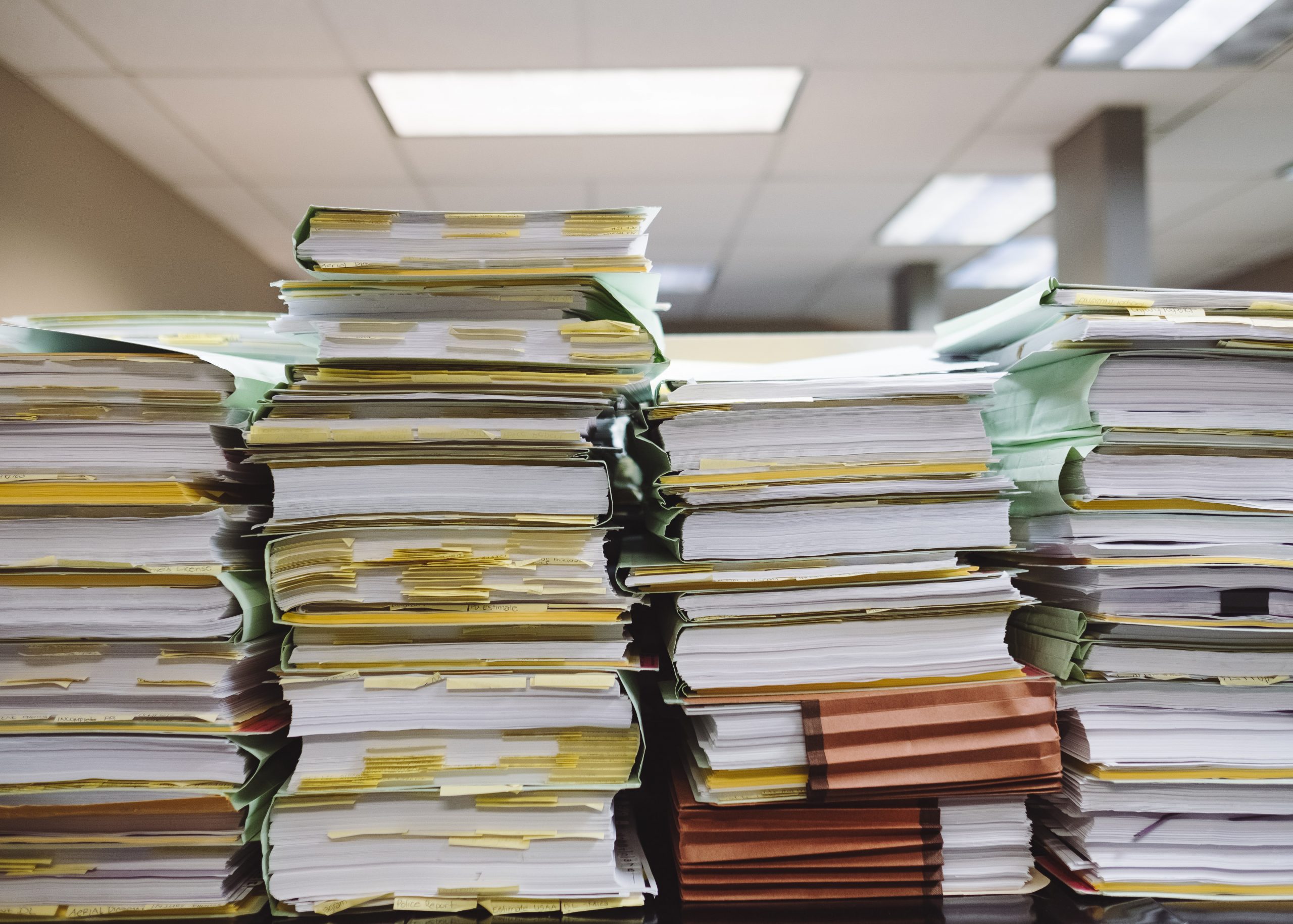
We all know life at work can be stressful – projects piling up, deadlines to be met, time constraints to battle, human and technical interruptions. Then, add clutter to the mix and it’s no wonder we are stressed!
You may not think clutter is a big factor, but it can add to our stress and affect our efficiency in a variety of ways. Psychologists and researchers have discovered that clutter is one of the leading factors that affects our productivity.
- Clutter can result in wasting valuable time. How much time do you spend looking for a misplaced document, file or item in the clutter surrounding your workspace? That’s time you could have spent on your current project and the deadline you are attempting to meet.
- Clutter can make us feel anxious and overwhelmed, which can lead to procrastination. You walk into your office and see all the stacks of documents, files and other items covering your desk, chair or any other available space. Suddenly you are reminded of all that you need to accomplish and think to yourself, “There is no way I can get through all of this.”
- Clutter can compete for our attention. While working on your project, you see something on the top of one of those stacks that draws your attention to another project, or a note tucked under your phone that suddenly reminds you of a call you need to make or a revision you wanted to make on another document. Anything else that has nothing to do with your current project and you are no longer focused on the task at hand.
- Clutter can make us feel confined and affect our ability to think freely. It can make us feel physically constricted and negatively impact our ability to think.
- Clutter can affect our level of motivation. We need to value the work we do, but it’s hard to get motivated when we don’t value the environment in which we do the work.
One Stressor We Can Control
There are many factors contributing to stress at work that we can’t control, but clutter is one we can. The process of decluttering is not a one-size-fits-all process. The goal is not to have a desk that has absolutely nothing on it, but rather a desk that is organized and conducive to our productivity. Here are some suggested steps on how to attack your clutter.
- Schedule a set, reoccurring time on your calendar to address organization. If the task seems overwhelming, break it into smaller projects spread out over a given period of time.
- Determine your everyday workflow. The goal is to only have those items on the top of your desk that you use daily and need within arm’s reach. The end result should be organized in a way that is conducive to your working style.
- Beginning with the top of your desk, sort through any paper documents you have stacked on your desk. For any supplies laying out, the items that you use daily and need within arm’s reach should be organized in containers or, for blank folders and labels, a lateral file. Put the other, less-used supplies in a drawer or box for now.
- Next, sort through folders by creating stacks for the folders you need and the folders you can throw out. Then destroy in an appropriate manner the ones that can be thrown out and file the folders you want to keep or, if you need, stack them in a useful order on your desk.
- Now attack the infamous “junk drawer” (or box) where you tossed the supplies you determined you didn’t need every day when cleaning off the top of your desk. Find containers appropriate to the items you want to store in your drawer, label them if necessary. Before leaving for the day check the top of your desk and quickly put items back in the appropriate places.
- Go through each drawer, cleaning out what can be thrown away and storing the things you need in an orderly fashion.
- Personal items need decluttering also. We can often build up quite a collection of gifts, promotional items, awards and memorabilia. Surround yourself with only the items that are important to you.
- Lastly, don’t forget about decluttering your computer as well. Delete old files or move them from your desktop to a cloud storage system. Create and label folders in which to organize documents so they can readily be found. Clean out downloads and your recycle bin, and clean out unnecessary emails. Use the “unsubscribe” option from those annoying websites that are constantly sending emails.
Having clutter in our offices wastes valuable time, increases anxiety, lessens productivity and affects the perception clients and colleagues have about us. Now that you know just how much clutter impacts the stress in our lives, make a date with yourself to begin your decluttering efforts today!
